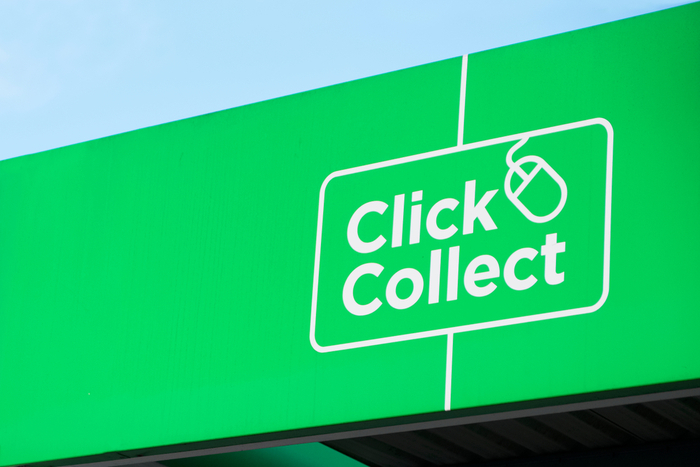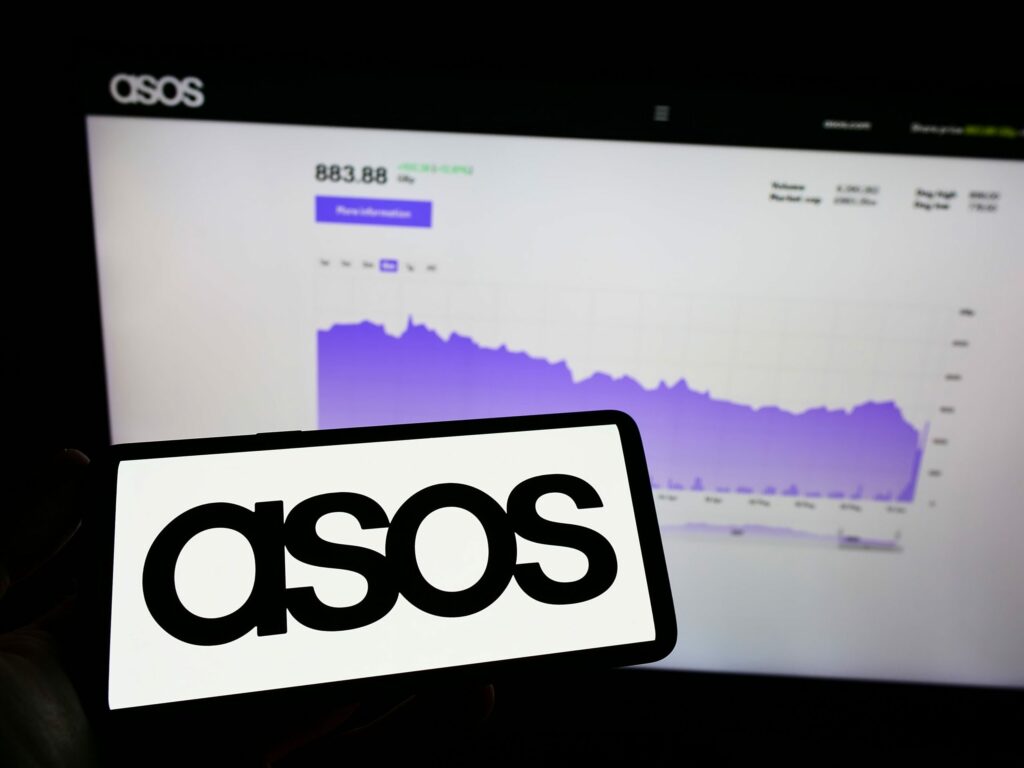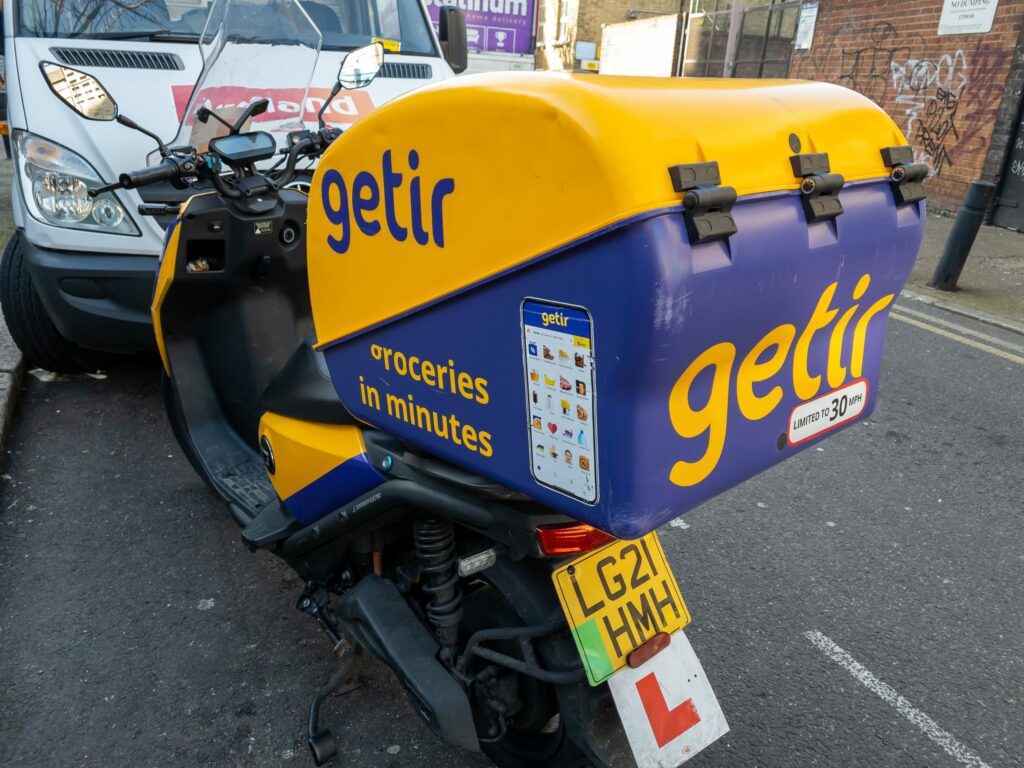With retailers witnessing a tough trading climate in recent years, it’s no surprise they are prioritising other channels, other than standard in-store transactions, to boost their sales.
Click-and-collect just happens to be one tactic employed by retailers to achieve this. While far from being a new or ground-breaking service, it has arguably been a lifeline for retailers during the pandemic – not just during the first lockdown last spring, but also amidst other restrictions that have been in place since, including the current nationwide lockdown.
Last year, at least 80 per cent of retail shops offered click-and-collect, an increase of 32 per cent since 2019, according to data from Statista. Meanwhile GlobalData said the click-and-collect market in the UK is forecast to reach £9.6 billion in 2022, accounting for 13.9 per cent of online sales.
However, in mid-January several non-essential retailers announced the suspension of click-and-collect services at their shops to help limit contact and curb the spread of Covid in the wake of a new, more infectious variant of the virus that emerged around Christmas.

The removal of the service could hit these non-essential retailers’ profit margins disproportionately, as they are also likely investing heavily in additional warehousing and distribution to meet demand.
Topshop, JD Sports, Joules, and Fat Face were among the first non-essential retailers to remove click-and-collect services. They announce the suspension of the service shortly after John Lewis Partnership took the initiative to click-and-collect from its eponymous department store chain.
The partnership said it felt the decision was right, with the nation at such a “critical point in the pandemic”, and that it wanted to “remove reasons for non-essential travel”.
With our shops now closed, our priority remains to keep you and our Partners safe, so we will no longer be offering Click & Collect at John Lewis shops. You can still Click & Collect from Waitrose shops and over 500 new locations. Find out more here: https://t.co/L2Zv7uV5tC pic.twitter.com/D3Low4IlEE
— John Lewis & Partners (@JohnLewisRetail) January 12, 2021
Despite click-and-collect being switched off for new orders from the John Lewis department stores, the service will still be available from sister retailer Waitrose. But unlike John Lewis, Waitrose is classed as an essential retailer and can have their bricks-and-mortar shops remain open for trade amidst the lockdown.
Argos, Currys PC World, Next, Aldi, Asda, Marks & Spencer, Tesco, Sainsbury’s B&Q, Homebase and Wickes are also all still offering the service – although most of these retailers, like Waitrose, are classed as essential.
Meanwhile, Scotland recently implemented a ban on click-and-collect for all non-essential retailers trading in the country. Northern Ireland has also implemented a similar rule for non-essential retailers there.
Click-and-collect is arguably an attractive investment for retailers given the low cost of deliveries. It also gives customers a choice by allowing them to make a purchase online and choose to collect that purchase at a pre-chosen location, saving them on delivery fees.

With lockdown restrictions being extended until at least md-February in all four nations of the UK, retailers are already likely to lose out on physical store sales. Suspending or having their click-and-collect service banned could further exacerbate this.
Speaking in the context of non-essential retailers trading in Scotland, Scottish Retail Consortium director David Lonsdale said: “These further revenue-crushing restrictions and the fresh complexity they bring, together with constant chopping and changing to the Covid Strategic Framework, are disconcerting and come at an incredibly difficult time for retail.
“Firms operating click-and-collect have taken every reasonable step to make their operations as safe as possible, complying with every twist and turn to government guidance and often at pitifully short notice.
“They have demonstrated they can operate safely and have invested significantly to make their premises Covid-secure, and it appears no evidence to the contrary has accompanied this announcement.”
According to the World Health Organisation, Covid can be spread by contaminated surfaces – caused by droplets from infected people, like a cough or sneeze. Arguably, it would be a smaller price to pay for retailers if authorities were to introduce even stricter laws around the use of hand sanitiser, face masks, sterilised gloves and more rigorous cleaning of surfaces.
“The businesses affected – who have already lost much of their income during the crisis – are trying to make the best fist possible of the current severely curtailed trading conditions, and that just got even harder as a result of this decision which will add to their cash flow woes,” Lonsdale added.
“Preventing people using click-and-collect services would harm the viability of many retailers”
BRC business and regulation director Tom Ironside told Retail Gazette that click-and-collect was used by a wide array of retailers and “allows the public to get many of the goods they need in a safe, convenient and timely manner”.
“Retailers have implemented systems to ensure people are kept safe while queuing and collecting goods, and we have seen no evidence to suggest otherwise,” he explained.
“Preventing people using click-and-collect services would harm the viability of many retailers, already suffering under lockdown, as well as severely limiting the choice for some consumers.”
Arguably, retailers still make the majority of their sales in-store rather than online, since ecommerce operations can present additional costs around warehousing, distribution and delivery. Shoppers also still prefer the high street to online shopping – although this could potentially change in the long term once the pandemic is over, whenever that may be.
This is why click-and-collect has proved popular with multichannel retailers. It allows them to limit distribution and delivery costs while still offering customers the convenience of an online store, with the added bonus of an in-store shopping experience.
Wayne Snyder, vice president of retail industry strategy at supply chain provider Blue Yonder, argued that placing restrictions on click-and-collect would only heighten the operational and financial issues facing many retailers. He said this was because customer orders would need to be met solely through home delivery.
“Many have used click-and-collect as a way to alleviate some of the strains, while at the same time providing a way of selling the inventory that is sat in a closed store,” he explained.
“For those retailers that do offer not online delivery, the financial challenges will be even greater.
“There will be unforeseen implications such as the environmental impact of additional road traffic and packaging.
“Supply chain agility and visibility will be key to navigate through these challenges, alongside accurate demand forecasting and a focus on the availability of key products.”
Animesh Chowdhury, founder of retail agency Goodtill, argued that click-and-collect should be available for both essential and non-essential retailers.
“Click-and-collect is probably more valuable to those deemed non-essential at this point in time,” he told Retail Gazette.
“Essential retailers can operate openly, and they seem to be keeping customers socially distanced, limiting store numbers and creating a safe environment for shoppers.”
Chowdhury further argued that each product has the potential to have been contaminated somewhere along its supply chain, and that potential is compounded when it is all placed into the same delivery van, being handled by the same person making the deliveries.
“With click-and-collect you have one location, one handler and one customer,” he said.
“Customers can even select or be allocated a specific time slot, to collect their order to prevent overcrowding.”
Furniture retailer Dunelm announced in mid-January that it had deployed a curbside and deliver to-car service to its customer offering at its 170 superstores across England, Scotland and Wales in response to the latest lockdown restrictions. This effectively means shoppers never have to leave their car when coming to collect their online orders from Dunelm stores.

“As a consequence of Covid-19, we wanted a process which would be quick, safe and simple for our customers and colleagues,” Dunelm in-store service project manager Grace Henry said.
“Colleagues have found it easy to manage, and customers have found it easy to use.”
Hayley-Jayne Cone, chief customer officer at experiential relationship management firm JRNI, said there was no need to suspend click-and-collect completely during the pandemic.
“There are alternatives. Physical queues are unnecessary and irresponsible at the moment,” she argued.
“However, many retailers, like Dunelm, are using a combination of technology, good customer service, and common sense to ensure that safe shopping experiences can continue.”
With Covid cases at critical levels across the UK, it’s perhaps no surprise that non-essential retailers are being encouraged to suspend click-and-collect services. But this decision comes as yet another blow to those that have already been hit hard by the pandemic and the resulting lockdowns.
Banning or suspending click-and-collect reduces the need for people to travel for non-essential reasons, which may be a wise decision given the current climate. It also reduces the non-retailer’s need to have staff on site at their temporarily shuttered stores, which again reduces footfall and people moving around.
With news that MPs are considering a countrywide ban on click-and-collect services – at least for England – the need for the retail sector to rapidly adapt to challenges from Covid is once again under the spotlight. And it’s a tricky challenge, as the pandemic has undoubtedly led to a wave of shoppers whose standards of customer service and experience are higher than ever.
Click here to sign up to Retail Gazette’s free daily email newsletter


















